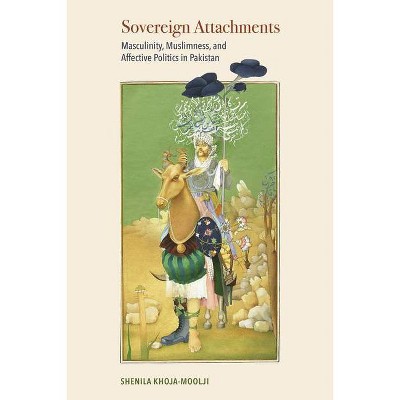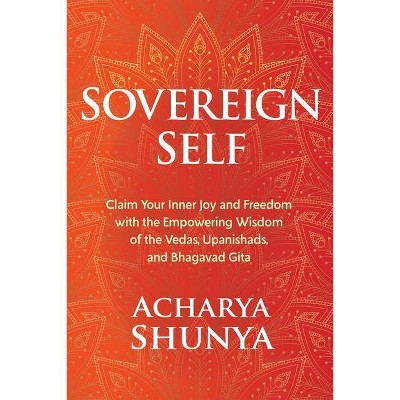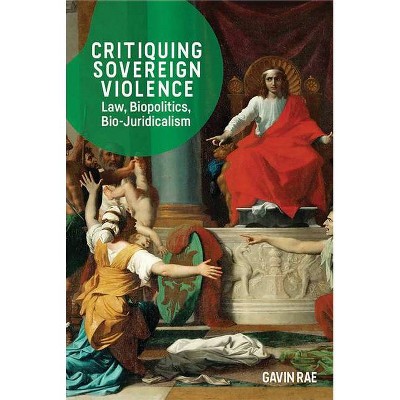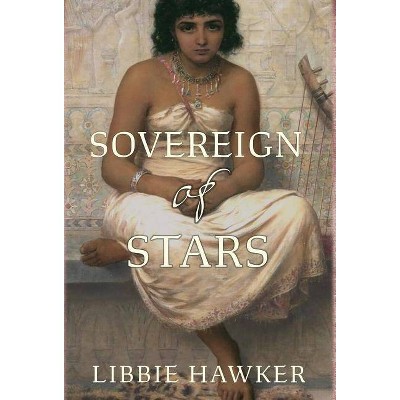Sovereign Attachments - by Shenila Khoja-Moolji (Hardcover)

Similar Products
Products of same category from the store
AllProduct info
<p/><br></br><p><b> About the Book </b></p></br></br>"Sovereign Attachments rethinks sovereignty by moving it out of the exclusive domain of geopolitics and legality, and into cultural, religious, and gender studies. Through a close reading of a stunning array of cultural texts produced by the Pakistani state and the Pakistan-based Taliban, Khoja-Moolji theorizes sovereignty as an ongoing attachment negotiated in public culture. Both the state and the Taliban recruit publics into relationships of trust, protection, and fraternity by summoning models of Islamic masculinity, mobilizing kinship metaphors, and marshalling affect. In particular, masculinity and Muslimness emerge as salient performances through which sovereign attachments are harnessed. The book shifts the discussion of sovereignty away from questions around absolute dominance to ones about shared repertoires, entanglements, and co-constitution"--<p/><br></br><p><b> Book Synopsis </b></p></br></br><i>Sovereign Attachments </i>rethinks sovereignty by moving it out of the exclusive domain of geopolitics and legality and into cultural, religious, and gender studies. Through a close reading of a stunning array of cultural texts produced by the Pakistani state and the Pakistan-based Taliban, Shenila Khoja-Moolji theorizes sovereignty as an ongoing attachment that is negotiated in public culture. Both the state and the Taliban recruit publics into relationships of trust, protection, and fraternity by summoning models of Islamic masculinity, mobilizing kinship metaphors, and marshalling affect. In particular, masculinity and Muslimness emerge as salient performances through which sovereign attachments are harnessed. The book shifts the discussion of sovereignty away from questions about absolute dominance to ones about shared repertoires, entanglements, and co-constitution. <br><p/><br></br><p><b> From the Back Cover </b></p></br></br>"<i>Sovereign Attachments</i> is an unprecedented and towering book that through a breathtaking analysis of a dazzling range of previously untapped sources shows the intimate resemblance between the Pakistani state's and the Tehrik-i Taliban Pakistan's interlocking and juxtaposition of Muslimness and masculinity. This is an intellectually courageous and politically productive book that offers a profound critique of sovereignty while also laying bare the fragility of masculinity. A landmark publication in the study of Islam, South Asia, and gender."--SherAli Tareen, Associate Professor Religious Studies, Franklin and Marshall College, and author of <i>Defending Muhammad in Modernity</i> <p/> "Khoja-Moolji has an incredible eye for the political significance of public cultural forms, and her virtuoso analyses of a stunning range of autobiographies, television shows, and print media in Pakistan confirm her counterintuitive core arguments: competing political groups share repertoires, sovereignty depends on affective attachments, and masculine sovereignty is performative and relies on deeply gendered scripts. A dazzling rethinking of the cultural dynamics of contemporary Pakistani politics that advances theorizing about the entwinement of politics and gender."--Lila Abu-Lughod, Joseph L. Buttenwieser Professor of Social Science, Columbia University <p/> "This book is a superb feminist analysis of sovereignty. Khoja-Moolji breaks ground by showing that the Pakistani state and the Taliban's competing claims to sovereignty are nonetheless girded by gender, sexuality, piety, and kinship. The turn to figurations such as the soldier, the daughter, the mourning mother, and militant women in the public sphere provides rich and often surprising insights into sovereignty's empirical and iterative aspects. Postcolonial Pakistan becomes a site of theory-production in Khoja-Moolji's expert hands."--Jyoti Puri, Professor of Sociology, Simmons University <p/> "An extremely important book that convincingly demonstrates how the State and Islamic groups in Pakistan produce ostensibly distinct sovereign claims and affects through shared discourses of gender, kinship, religion and nation. "--Aisha Ghani, Assistant Professor of Anthropology and Religious Studies, University of Minnesota <p/> "This ambitious book analyzes competing models of divine and human sovereignty in contemporary Pakistan and shows how multiple sovereign figures enact power over life and death. It should excite anyone interested in the question as to why sovereignty, despite Hobbes and Weber, has never been a monopoly of the state."--Milinda Banerjee, author of <i>The Mortal God: Imagining the Sovereign in Colonial India</i><p/><br></br><p><b> Review Quotes </b></p></br></br><br>"The interdisciplinary depth and reach of the book make it an impressive contribution to the study of gender, religion, and politics. . . . Khoja-Moolji's creative, vivid, and nuanced textual analysis provides a convincing bulwark for her central thesis."-- "Reading Religion"<br><br>"Khoja-Moolji presents critical new material that contributes to debates regarding the role of emotion, kinship, and gender in political movements. . . . <i>Sovereign Attachments</i> is a fascinating read"-- "Ethos"<br><br><p>"Khoja-Moolji's book, with its focused context and excellent feminist analysis, illuminates the complex dynamics of sovereignty, forcing the reader to move beyond visible sovereign contests of violence and to consider those contests that occur in the cultural sphere."</p>-- "Al-Raida"<br><br>"Khoja-Moolji's success lies in highlighting the imbrications of sovereignty with religion as well as gender. . . . <i>Sovereign Attachments</i> would be of interest to both undergraduate and graduate students in the fields of international relations, gender and sexuality studies, Islamic studies and Asian studies."-- "LSE Review of Books"<br><p/><br></br><p><b> About the Author </b></p></br></br><b>Shenila Khoja-Moolji</b> is Assistant Professor of Gender, Sexuality, and Women's Studies at Bowdoin College. She is the author of the award-winning book <i>Forging the Ideal Educated Girl: The Production of Desirable Subjects in Muslim South Asia</i>.
Price History
Price Archive shows prices from various stores, lets you see history and find the cheapest. There is no actual sale on the website. For all support, inquiry and suggestion messagescommunication@pricearchive.us



















